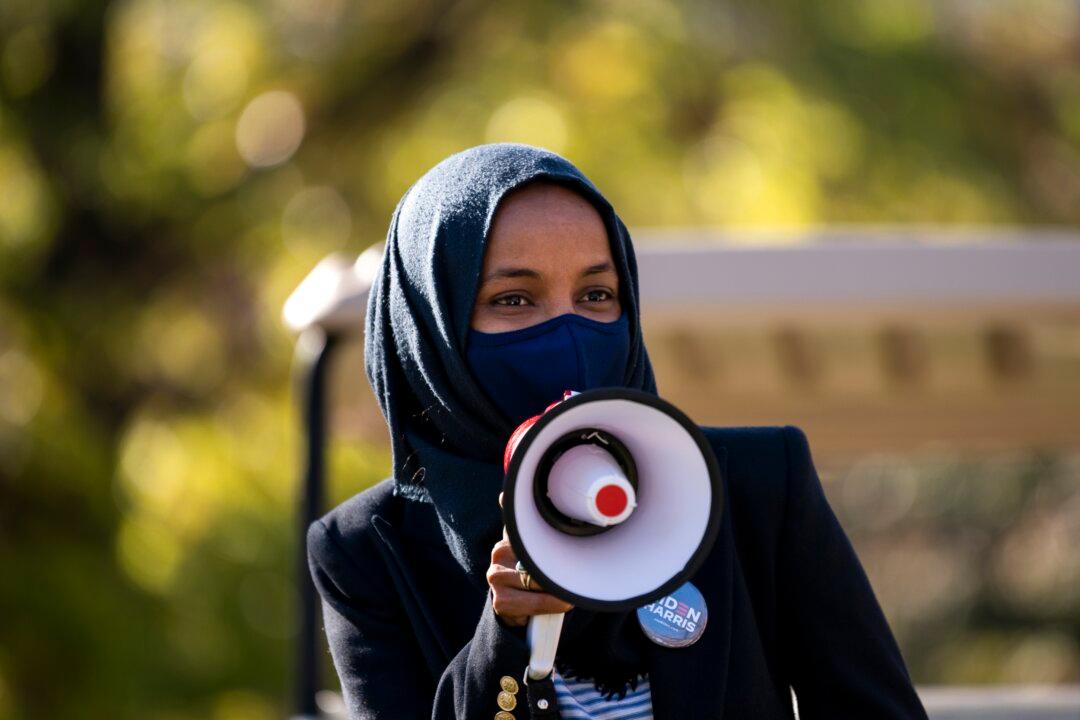A bipartisan, bicameral group of lawmakers is refusing to get the new COVID-19 vaccine.
The diverse group includes Rep. Ilhan Omar (D-Minn.) and Sen. Rand Paul (R-Ky.).


A bipartisan, bicameral group of lawmakers is refusing to get the new COVID-19 vaccine.
The diverse group includes Rep. Ilhan Omar (D-Minn.) and Sen. Rand Paul (R-Ky.).